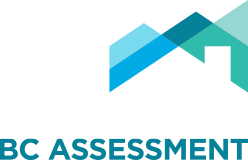A reference sheet on
Occupiers of Crown, Municipal or Otherwise Exempt Land provides additional general information on this topic.
Valuation of taxably occupied residential properties on exempt land
Private residential properties on land leased from an exempt party (e.g. a municipality, an Indigenous community, or the Crown) must be valued based on the full market value of the property as if it were privately owned, even though the person assessed holds a leasehold or other lesser interest.
This may result in a difference between the sale price of the leasehold interest in the property, where the purchaser buys the building and the right to lease the land, and the assessed value of the property, where the owner is assessed the full market value of the buildings and the land as though held in fee simple.
Why does BC Assessment value the fee simple interest?
By law, the fee simple interest is what must be valued for occupied exempt land. Property taxes pay for Provincial and municipal services (schools, hospitals, roads, police, fire, community centres, etc) and are based on the assessed value of a property. To ensure that everyone is responsible for an equitable share of property taxes, BC Assessment assesses the sum of all interests in a property (in this case, that of the lessor – the Crown, municipality, etc. – and the lessee – the property owner), also known as the fee simple interest.
Determining fair market value of the fee simple interest
Since the sales of properties in the same situation (e.g., a private townhouse on leased, exempt land) cannot be used to estimate the fair market value of the fee simple interest, BC Assessment instead uses sales of similar properties held in fee simple to determine the fair market value of the property.
Example:
In a strata complex where owners lease the land from the Crown, townhouses may sell for $150,000. The homeowner is responsible for paying a fee to lease the land.
BC Assessment must value the fee simple interest of the property as of July 1st, so looks outside the strata complex for similar townhouses that have sold in fee simple near the valuation date of July 1st. These properties may show that where the homeowner owns the land in fee simple the value is $250,000. BC Assessment will use these sales to determine the value of the leased property on exempt land.
Determining if your assessment reflects fair market value
To determine if your assessment reflects the fair market value of your property as of July 1st of the preceding year, you may access
Assessment Search on BC Assessment’s website to find sales of comparable properties.
You are encouraged to contact your local assessment office and speak with an appraiser to obtain more information on which properties may be comparable to yours and offer an indication of the fair market value of your property as though held in fee simple.
Disclaimer: Where information presented is different from legislation, legislation shall prevail.

